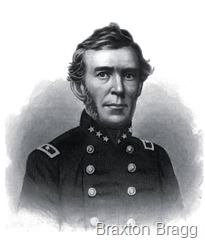September 3.—At a meeting of the National War Committee at New-York City, a resolution was passed that Generals Fremont and Mitchel be requested, with the consent of the Government, to organize, in the State of New-York, without delay, a corps of fifty thousand men, and in case the general Government refused consent, then application should be made to the State Government.
—The Seventeenth regiment of Connecticut volunteers, under the command of Colonel Noble, left New-York for the seat of war. Elias Howe, Jr., the inventor of the sewing-machine needle, was a private in this regiment.—New- York Evening Post, September 4.
—Hutchinson, Minn., was attacked by a party of one hundred Indians, who, after a fight of more than two hours, were repulsed with considerable loss. Forest City was also attacked, but the Indians were driven off.—St. Peter Press, Sept. 4.
—At New-York this morning, on the receipt of Southern news, a bulletin was posted in front of the Journal of Commerce office, stating that the rebels were advancing on Baltimore by the way of Leesburgh. A crowd gathered in front of the board, and the probabilities of the truth of the rumor were noisily discussed. General McClellan and his movements were loudly criticised and defended by persons of different political views. The crowd continued to increase till the street was quite blockaded, when a squad of police appeared and the bulletin was removed, to prevent further disturbance.—The Ninth Massachusetts battery left Boston this afternoon for the seat of war.
—Major Kemper, of the Tenth New-York cavalry, made a reconnoissance in the immediate vicinity of Centreville, Va., capturing four rebel soldiers. One of them stated that there were only about twenty thousand rebel troops under General Longstreet, the rest having gone off with Jackson in some direction unknown to him.
A cavalry reconnoissance made in the vicinity of Vienna and Langley, Va., revealed the fact that the rebel cavalry, lately in those neighborhoods, were no longer hovering about there.— Washington Star, September 4.
—Winchester Va., was evacuated by the National troops under the command of General White. Yesterday afternoon at three o’clock, orders were received from General Pope to evacuate the town and retreat on Harper’s Ferry, M(L, and this morning at one o’clock the rear-guard of Maryland cavalry, under the command of Captain Russell, left the place, having first set fire to the buildings containing the quartermaster’s stores, and magazines.—The schooner N. Berry of Camden, Me., having on board A. J. Hamilton, a member of Congress, and other refugees from Texas, was overhauled near the South-West Pass of the Mississippi river, by the United States brig Bohio.—Boston Journal.
—The steamer W. B. Terry, with two Dahlgren howitzers on board, while aground in the Tennessee River at Duck Shoals, was captured by a body of rebel guerrillas. The rebels also captured three free negroes, and sold them at once into slavery.
—A skirmish took place near Slaughterville, Ky., between a force of Union troops under Lieut.-Col. Foster, and a body of rebel guerrilla cavalry, resulting in the defeat of the latter, who had three of their number killed, two wounded, twenty-five taken prisoners, including their horses and arms.—Lieutenant Foster’s Report.
—Colonel Shackelford, in command of a numerically inferior force of Union troops, attacked a body of six hundred rebel guerrillas, under Colonel Johnson, encamped near Grieger’s Lake, Ky., and routed them. Afterwards they rallied on the opposite side of the Lake and attacked the Unionists. A severe engagement followed, lasting two hours, when, the ammunition of the Union troops becoming exhausted, they retreated, closely followed by the rebels, whereupon Colonel Shackelford ordered a charge, and again routed the enemy. After burning the rebel camp and removing the guns, the retreat was renewed without molestation.
Braxton Bragg (March 22, 1817 – September 27, 1876) was a career United States Army officer, and then a general in the Confederate States Army—a principal commander in the Western Theater of the American Civil War and later the military adviser to Confederate President Jefferson Davis. (Wikipedia)



